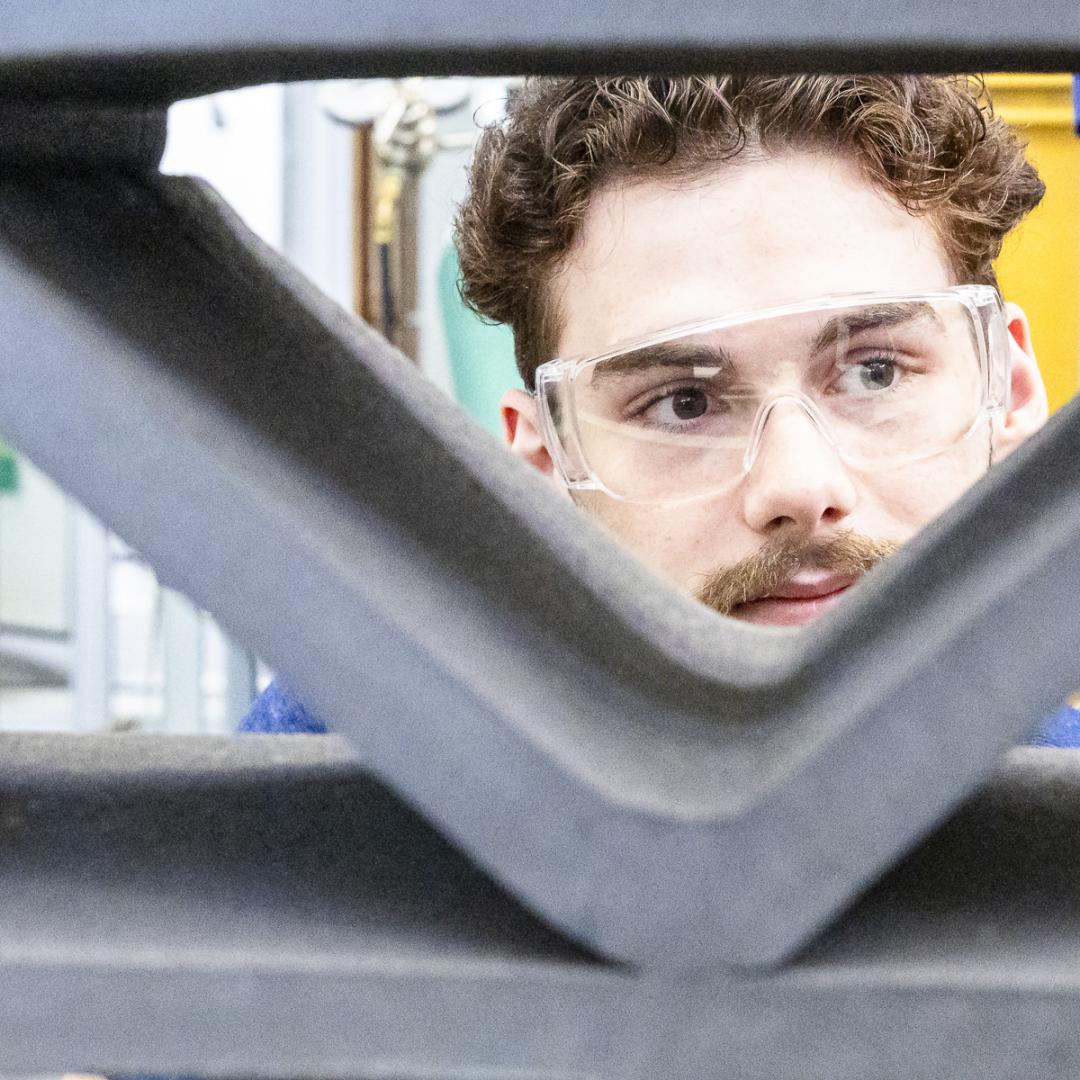Filter News
Area of Research
- (-) Fuel Cycle Science and Technology (1)
- (-) Materials for Computing (5)
- Advanced Manufacturing (22)
- Biology and Environment (14)
- Building Technologies (1)
- Clean Energy (83)
- Fusion and Fission (3)
- Fusion Energy (1)
- Isotopes (1)
- Materials (26)
- National Security (36)
- Neutron Science (8)
- Nuclear Science and Technology (4)
- Supercomputing (13)
News Topics
- (-) 3-D Printing/Advanced Manufacturing (4)
- (-) National Security (2)
- Bioenergy (1)
- Biology (1)
- Biomedical (2)
- Chemical Sciences (4)
- Climate Change (1)
- Composites (1)
- Computer Science (7)
- Coronavirus (3)
- Decarbonization (1)
- Energy Storage (4)
- Environment (1)
- Isotopes (1)
- Materials (10)
- Materials Science (15)
- Microscopy (4)
- Nanotechnology (7)
- Neutron Science (5)
- Nuclear Energy (1)
- Polymers (6)
- Quantum Computing (1)
- Quantum Science (3)
- Security (1)
- Simulation (1)
- Space Exploration (1)
- Summit (1)
- Sustainable Energy (5)
- Transportation (5)
Media Contacts
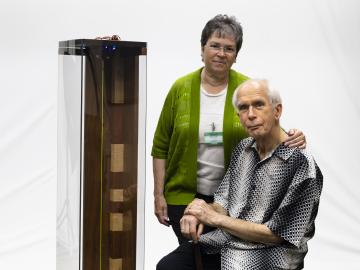
For years, Duane Starr led workshops at ORNL to help others from across the U.S. government understand uranium processing technologies. After his retirement, Starr donated a 5-foot-tall working model, built in his garage, that demonstrates vibration harmonics, consistent with operation of a super critical gas centrifuge rotor, a valuable resource to ongoing ORNL-led workshops.
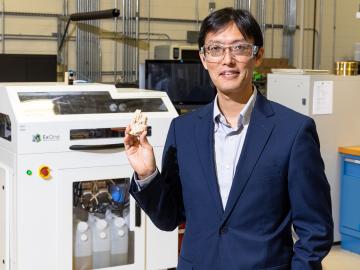
Researchers at ORNL designed a novel polymer to bind and strengthen silica sand for binder jet additive manufacturing, a 3D-printing method used by industries for prototyping and part production.
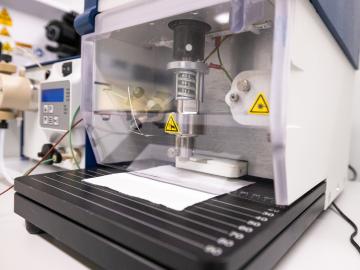
Analytical chemists at ORNL have developed a rapid way to measure isotopic ratios of uranium and plutonium collected on environmental swipes, which could help International Atomic Energy Agency analysts detect the presence of undeclared nuclear
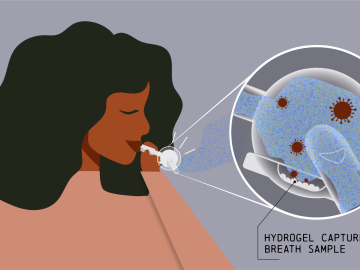
Collaborators at Oak Ridge National Laboratory and the University of Tennessee Health Science Center are developing a breath-sampling whistle that could make COVID-19 screening easy to do at home.
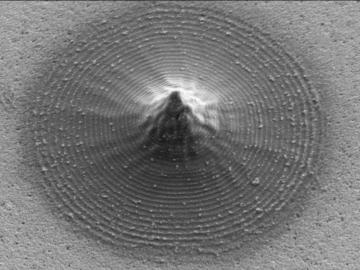
Scientists at Oak Ridge National Laboratory and the University of Tennessee designed and demonstrated a method to make carbon-based materials that can be used as electrodes compatible with a specific semiconductor circuitry.
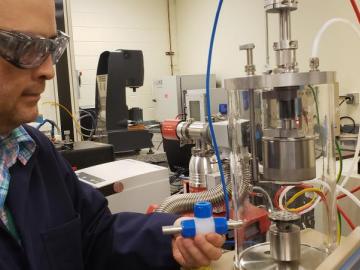
Four research teams from the Department of Energy’s Oak Ridge National Laboratory and their technologies have received 2020 R&D 100 Awards.



